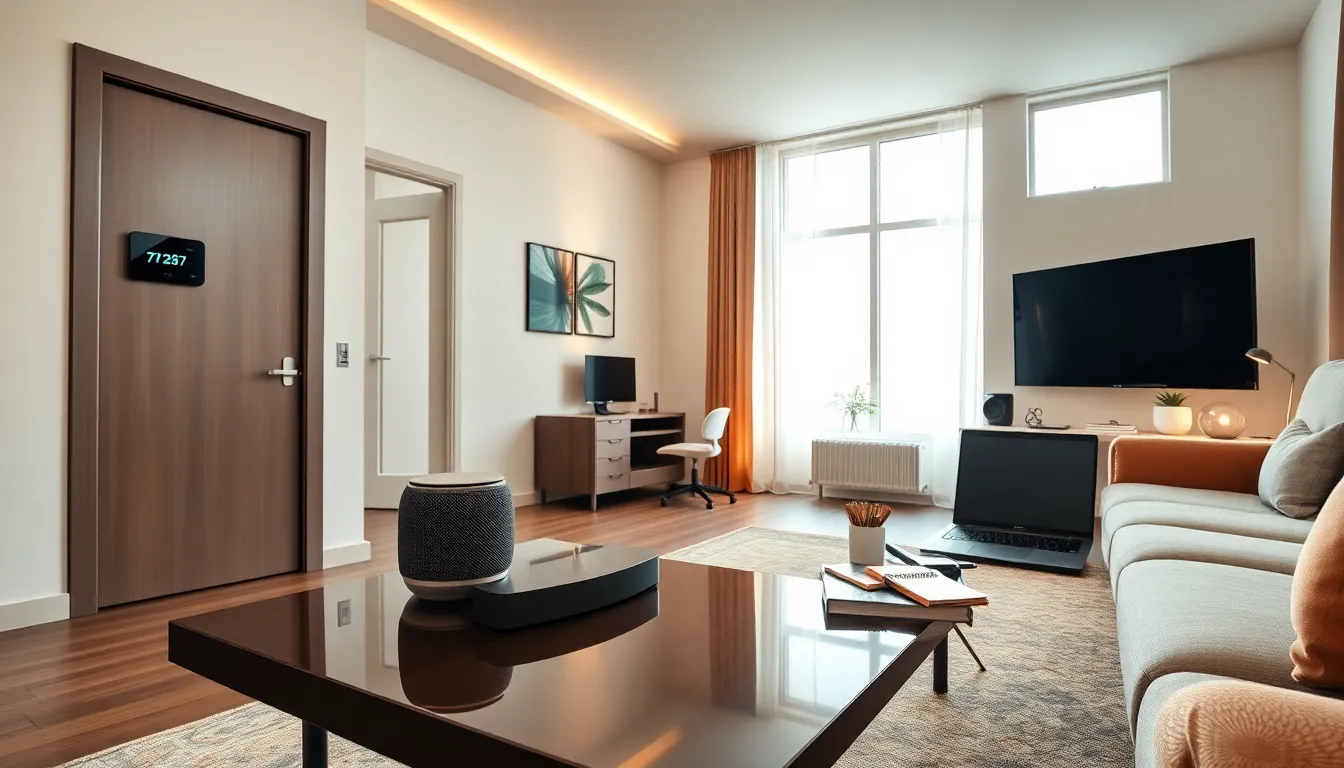When it comes to living arrangements, the age-old debate of buying a condo versus renting never fails to spark heated discussions. On one hand, buying a condo can make you feel like a property tycoon: on the other, renting offers the freedom of flexibility, kind of like dating without the commitment. Which path is better for those in the hunt for a home? Whether you’re a first-time buyer or a seasoned renter weighing the pros and cons, this guide will break down everything you need to know to make an informed choice without the headache. Grab your favorite beverage and let’s jump into the condo conundrum.
Table of Contents
ToggleUnderstanding the Basics of Condos

Condos, short for condominiums, represent a unique hybrid between owning and renting. When individuals purchase a condo, they own their unit while sharing ownership of common areas like pools, gardens, and hallways with their neighbors. This structure creates a community vibe, which can be appealing to those who value social connections. The monthly fees associated with condos often cover maintenance and repairs, adding a layer of convenience. But, potential buyers should be aware of the rules and regulations established by the homeowner’s association (HOA) that governs the community. Each condo has its own set of guidelines, which can include restrictions on pets, renovations, or even rental policies.
The Financial Implications of Buying a Condo
Diving into condo ownership typically requires a hefty financial commitment. First, there’s the down payment, often around 20% of the condo’s price, though some loans allow for lower down payments. After that, monthly mortgage payments, property taxes, and HOA fees become part of the owner’s budget. Yet, unlike renting, homeowners build equity over time, making it a potential investment. That said, the risks of property value fluctuations mean that it’s essential to research the market before handing over a check. Owners also need to budget for maintenance costs that arise over time, which can sometimes steal the spotlight from their excitement about owning a place.
The Pros and Cons of Renting
Renting offers the allure of flexibility not often found when buying. Renters can easily change locations, whether due to a new job, a desire for different surroundings, or simply exploring different lifestyles. This flexibility means that if the perfect job in a different city arises, they can pack up without the burden of selling a property. But, there are drawbacks too. Renters don’t build equity, and rising rental rates can make budgeting a challenge. They are often subject to the landlord’s whims about property changes or maintenance issues. Besides, the lack of stability can be concerning for those desiring a consistent home environment.
Key Factors in Deciding to Buy or Rent
Deciding whether to buy a condo or rent hinges on various factors. For starters, assess financial stability. Those with solid savings and job security might be more inclined to consider buying, while those with fluctuating income may prefer the lower upfront costs associated with renting. Next, think about long-term intentions. Are they planning to stay in one place for several years, or are they more of a wanderer? Understanding personal goals can offer clarity. Also, market conditions, interest rates, and housing inventory are crucial to weigh. Buyers might strike gold in a buyer’s market, while renters might benefit from lower rental rates during economic downturns.
Lifestyle Considerations for Buyers and Renters
Lifestyle plays a significant role in this decision-making process. Buyers often relish the idea of personalizing their space. Want to knock down a wall or paint that vibrant blue? Go for it. Renters, but, usually face limitations on customization, many landlords prefer neutral colors and no permanent alterations. Community dynamics also differ significantly. Condo living often entails shared amenities, while renting might provide a more isolated experience. For social butterflies, condos can lead to a sense of camaraderie. But for those who cherish solitude or pickiness about neighbors, renting can offer a reprieve.
Market Trends and Their Impact on Your Decision
The real estate market can be a rollercoaster ride, and understanding it can tip the scales between buying and renting. For example, high interest rates may discourage purchasing, nudging folks to consider renting instead. Conversely, if the market is peaking, it might be the perfect opportunity to invest in a property before prices soar even higher. Keeping an eye on local market trends, such as average rental prices versus mortgage rates, becomes essential in making an well-informed choice. Economic forecasts can shape expectations: knowing whether the market is expected to appreciate or depreciate can influence one’s choice.






